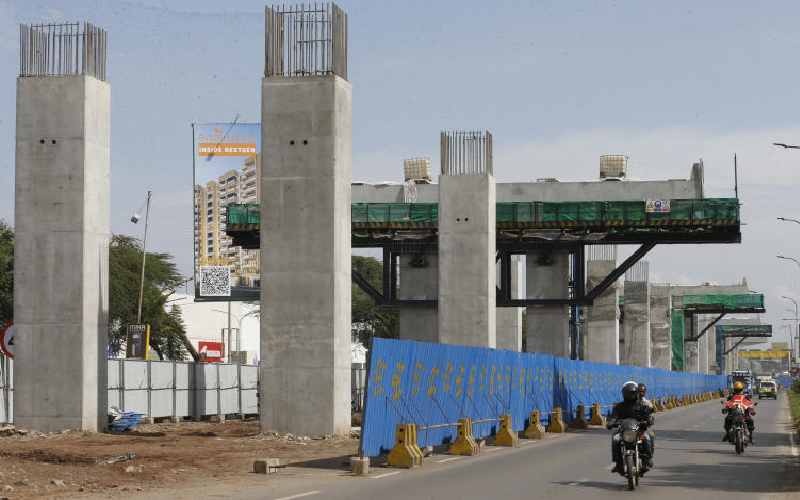×
The Standard e-Paper
Home To Bold Columnists

Main construction activities on the 27.1 Km Nairobi Expressway project by the China Road and Bridge Corporation (CRBC) through a Public-Private Partnership (PPP) model on February 25, 2021. [Stafford Ondego, Standard]
Motorists who use Mombasa Road may be irked by the current traffic snarl-ups as a result of the ongoing construction of the monumental Nairobi expressway.







